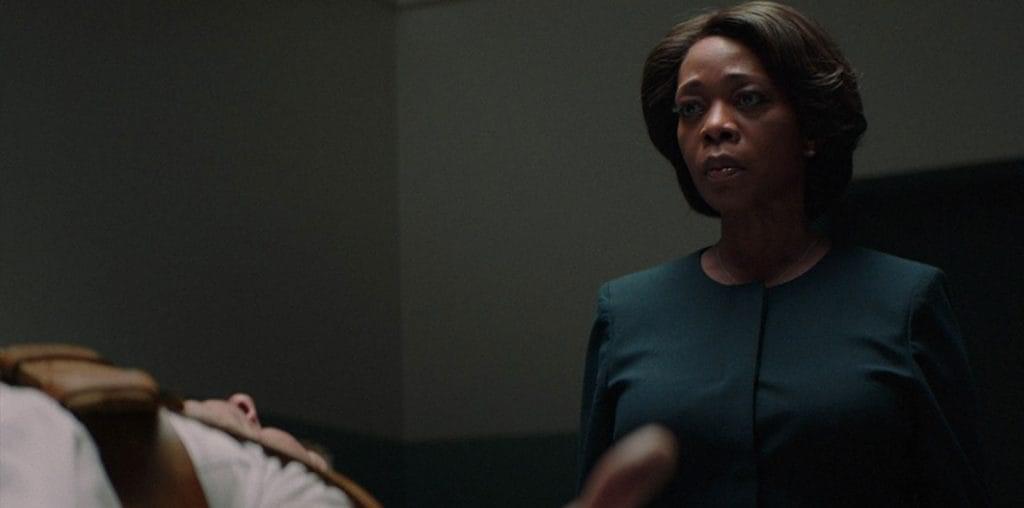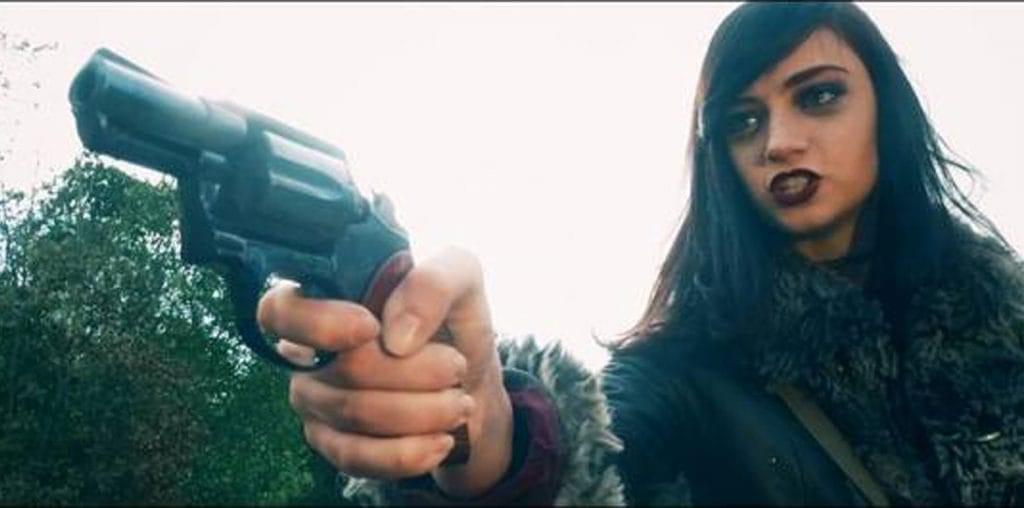
Club Med takes on a whole new meaning in this tour de farce mockumentary that traces the rise, fall and resurrection of the Phantom of the DJ Booth, Frankie Wilde. The film soars on the talent of Paul Kaye’s magnificent portrayal of a pop music icon’s self abuse, descent into total deafness and rebirth that moves more than a humungous rock from the eternal tomb of silence.
Coke-head, scotchaholic and everything-goes party animal Wilde is the darling of the Ibizan club scene and at the top of the charts with his “Rise Again” hit (featuring a buff pair of Austrians who fill out the tracks even as they irrevocably pound on their meal ticket’s ear drums). Neither fame nor fortune can stop the auditory deficit. Wilde’s first internal realization comes as he fails to hear the approach of his step-son and crashes to the floor in shock and pain. Beethoven’s uncredited “Moonlight” sonata tinkles with verisimilitude in the background.
Soon the fans notice the deficiencies and in a heartbeat turn on their hero whose stagey club entrance—bare-chested and sporting a crown of thorns—takes on extra meaning, except in this case it is the Christ figure who denies himself.
After confessing to his shameless/spineless promoter Max (Mike Wilmot, effortlessly oozing sleaze) that “I couldn’t hear a f*****g thing,” Wilde seeks the diagnostic skills of the medical profession. Faster than you can say MRI, the bad news is yelled into what little hearing capacity remains. Predictably, solace is sought with drugs and drink and a wonderful battle with the coke badger, whose white powdery muzzle is a deft touch of metaphorical brilliance.
Following one last failed attempt at completing their second album, the Austrians take a hike and Wilde awakens from the last straw overdose of decibels to a world of total silence. Director Michael Dowse, whose unerring sense of timing, balance and tone permeates the production, shuts down all tracks and brings the viewer immediately into Wilde’s hearing void. Despite his addictions and disregard for his own body, this moment provides an unforgettable feeling of the “other worldness” of any person living with a disability.
As despair fuels further excess, wife Sonja (Kate Magowan, sultry and suave) with step-son in tow abandon their man who is too deaf to hear her famous last words or realize that the man/friend taking them away has also become her lover. For just dessert, the DJ company fires him “I didn’t want the company to be stuck with a death stamp.” No fiction there.
Dowse’s script now shifts to a truly marvellous sequence where, aided by the stellar camera of Balazs Bolygo and spot-on edits of Stuart Gazzard, Wilde locks himself into a padded cell, wraps his head in cloth—eschewing the thorns—and beats himself into oblivion with the same force as the dozens of sfzorzandi in Beethoven’s Ninth.
Surviving a near-death brush with fireworks (you have to see it!), Wilde flushes away his powder and sends the demon badger packing after pummeling it with a spade and emptying his double-barreled shotgun—self-exorcism was never better: the powder of addiction flowing from the carcass a wonderful image.
The road to recovery begins at the lip reading class. Wilde catches on fast and quickly discovers his deaf-teacher’s lips, Penelope (Beatriz Bartarda, quite simply spectacular in her honest portrayal: “There’s nothing wrong with being deaf.”), can produce more than just word cues. Downing double scotches and toasting “to silence” the pair makes a world of their own that is felt rather than heard.
Before long, Wilde has picked up on all manner of vibes and uses his previous experience and the magic of computer renderings of music’s pulse and dynamics to mix himself back into a job. With Verdi’s Dies Irae (Day of Wrath) for accompaniment, the reinvented DJ makes his way back to club Pacha, puts his bare toes to the speaker box and is suddenly back in the limelight.
Ever-greedy Max has lined up some interviews with the press, but Wilde and Penelope have vanished—never to be heard from again.
The film winds down with a few cutaways to “acquaintances” of the reborn DJ who offer various explanations for his vanishing. But none can outdo the camera’s sneak peek at Wilde teaching some excited kids (including a new child of his own) how to move their bodies in time to—what else?—The Beach Boys’ “Good Vibrations.”
The DVD extras (Previews, The Making of, The Rise, Fall and Redemption of Pete Tong) add considerable value, but the positive message (which lurks just under the surface) that the disabled have much more to offer than the rest of the population will ever understand, sends It’s All Gone Pete Tong to the must-see list for those who cowardly turn away from or pity their predicaments.
How would Beethoven’s Missa Solemnis have sounded if his hearing hadn’t been impaired?

